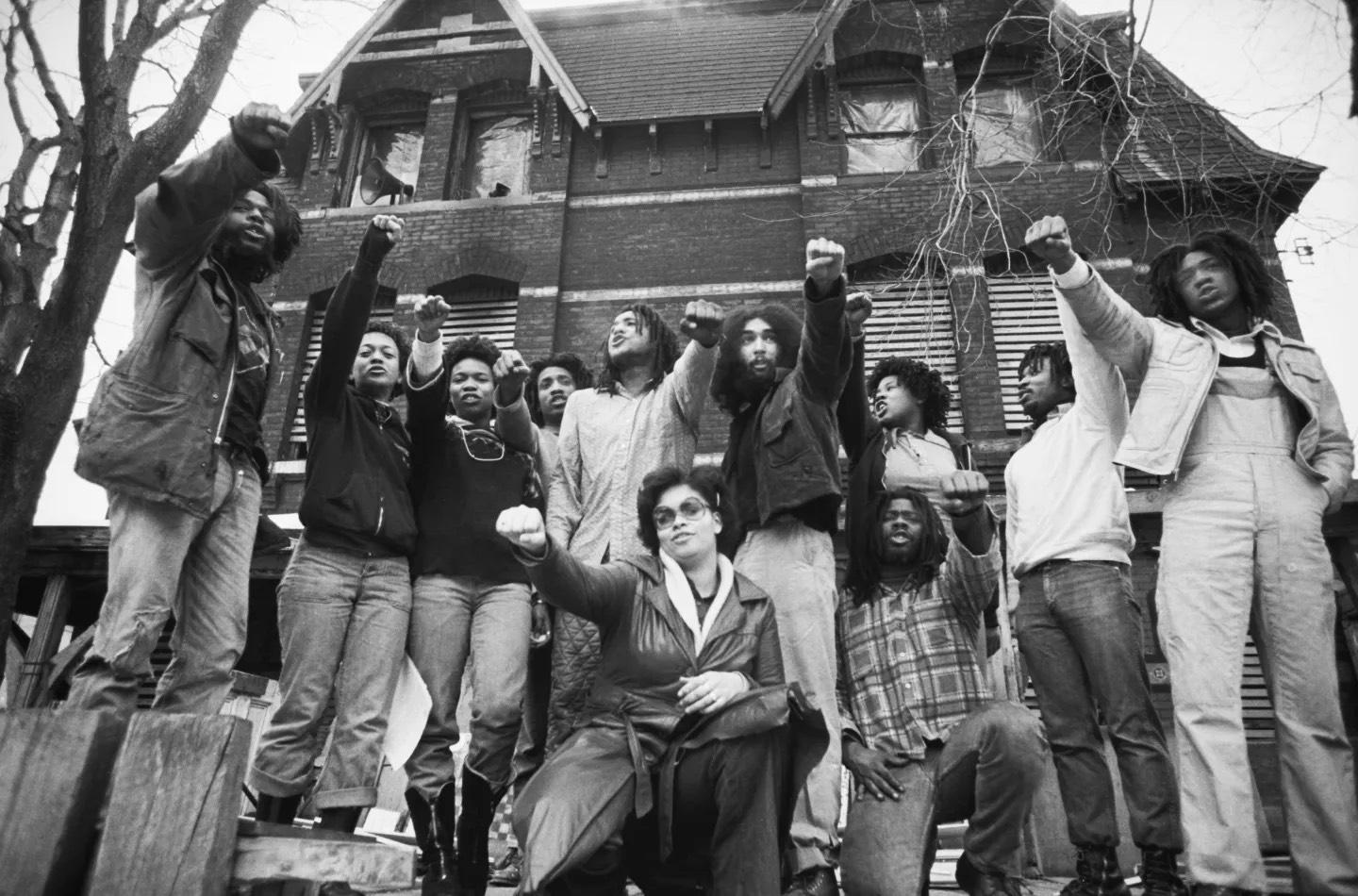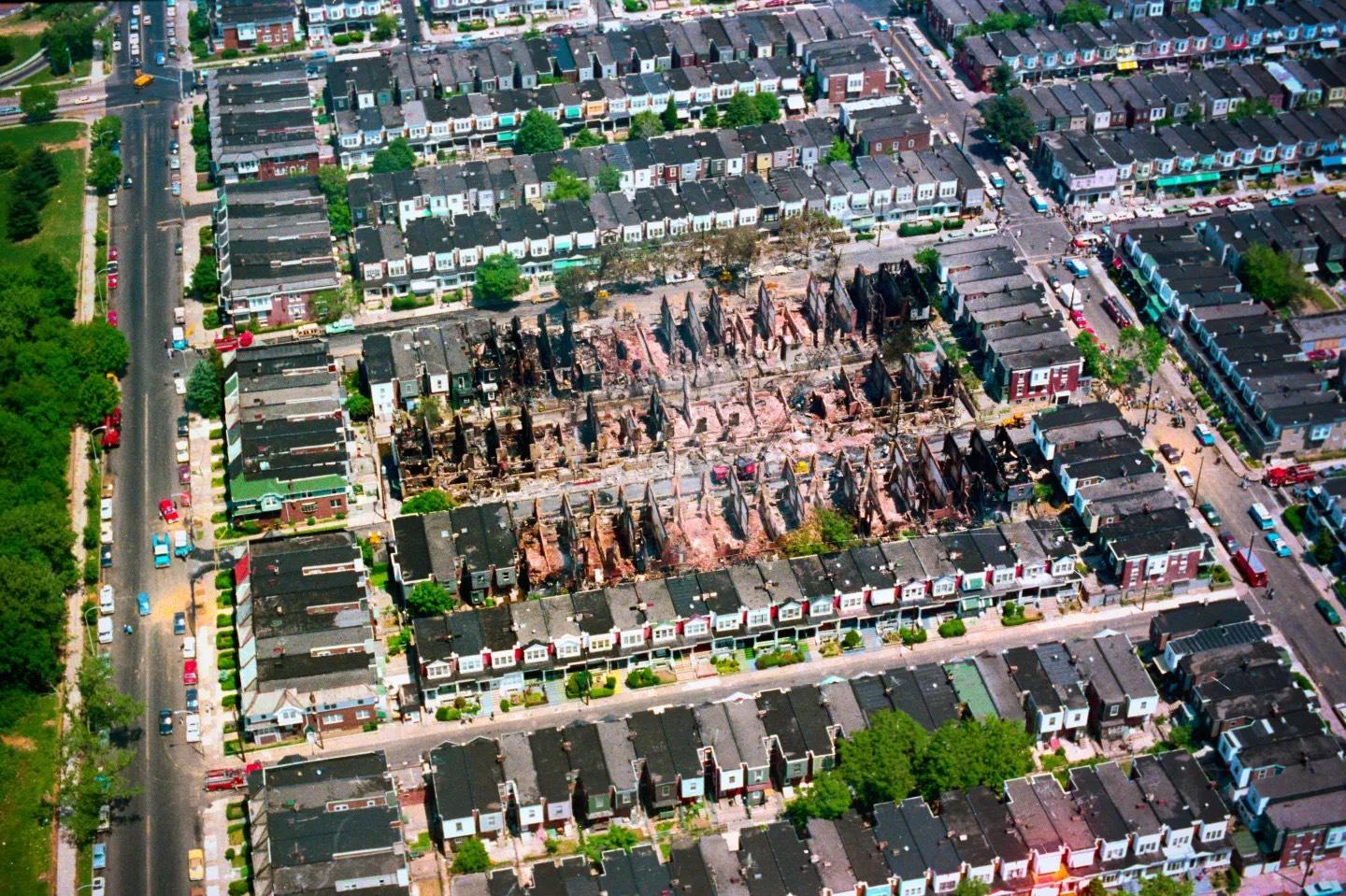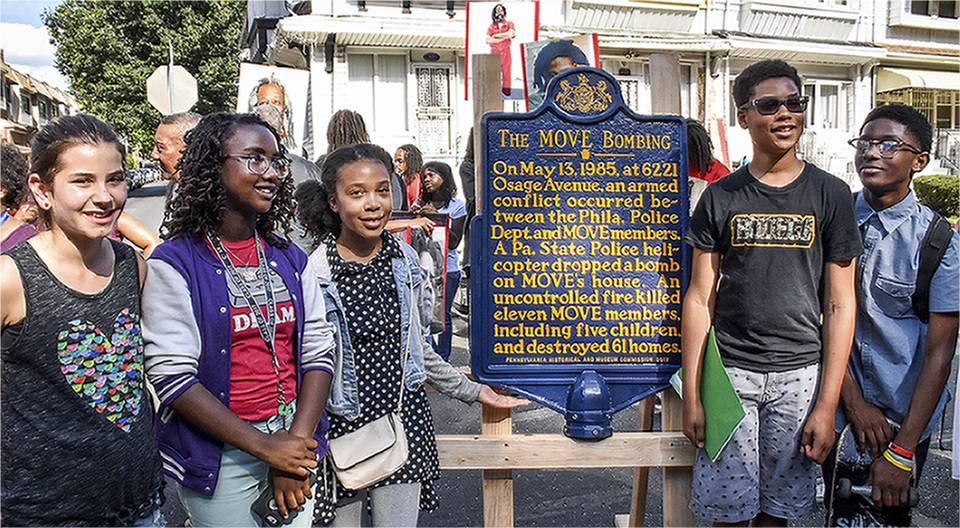By Anastasia Aleiferi,
Human history is plagued by wars and bloody conflicts because there is a constant struggle for power. In the USA, for example, we know that minority ethnic groups have suffered all kinds of discriminations and prejudices and for them to be recognised they fought and had political movements to achieve their goals. Even today, in the polarising political climate, we see in the USA people be discriminated and racially profiled by the police. Tensions have been always high between the black community and the police especially in the 70s and 80s, where a lot of liberation and equal rights movements and organisations started operating, such as the “Black Panthers” and a lot of conflict between police and minority groups took place, and most of the time they ended up bloody. So today, I wanted to talk about a forgotten part of American modern history from the 80s that may people do not know about, which is the MOVE bombing of 1985.

The MOVE bombing took place on 13 May 1985 and it was an airstrike destruction of residential homes in the Cobbs Creek neighbourhood of Philadelphia, by Philadelphia police department. MOVE is a black liberation organisation that was founded in 1972, in Philadelphia, by John Africa. At the time, this organisation adopted the philosophy of anarchs-primitivism, or non civilised anarchism and the organisation lived a communal. This organisation took inspiration on its way of operating by the “Black Panthers”, by also adding a lot of work on protecting the environment from industrialisation and animal rights.
In 1981, MOVE changed its centre of operating and living house to a row house in Cobbs Creek area of West Philadelphia. For years, their neighbours complained to the members of the MOVE and the city council about the trash, the dirty and the degradation of the neighbourhood and the noise that members of the movement made by bullhorn announcements about their political standing. After many complains and evidence was collected against certain members of the organisation, the police obtained arrest warrants, charging four members with crimes, such as parole violation, illegal possession of firearms and making terrorist threats. In 1985, the mayor of the city and the police commissioner classified the group as a terrorist organisation. The week prior to the official confrontation between the MOVE members and the police officers, the neighbourhood and the surrounding area were evacuated because there was fear that there could be a violent protest from the MOVE members and the police wanted to avoid unnecessary bloodshed.

On May 13, 1985, almost 500 police officers arrived at Cobbs Creek to evict and arrest the people that had active arrest warrants on their name. Water and electricity were shut off, to force them to move the members out of the house. When the police saw that their attempts were futile, they decided to use force to remove the members that were inside the house at that moment. Inside the building were 11 people, and half of them were children. What followed was an armed confrontation between the police and the people inside the house. After a few officers were shot, it was ordered that the house must be bombed. From a police helicopter, two bombs were dropped on the roof of the house. After the exposition of the bombs, a fire broke out and the house burned down, and the police seemed to let the fire grow out of control since after 30 minutes the firefighters arrived at the scene and, by then, the fire spread out to neighbouring houses. The result of the standout between the police and the MOVE members resulted in the death of 11 MOVE members and the destruction of two blocks of houses, resulting in leaving 250 people homeless. Only two people survived from the MOVE members, Birdie Africa (13 years old) and Ramona Africa. Ramona later stated that the police was shooting at those trying to escape, and the police, on its own report, said that two men ran out the house and were shooting towards the officers, so they were shooting at the escaping men.

The aftermath of that day wasn’t world-changing. The Philadelphia police Commissioner resigned, four months after that day. An investigation commission was appointed, and it gave its official report a year later, which declared that dropping a bomb on an occupied house was excessive and unreasonable. Not a single person from the governing body of Philadelphia was ever criminally charged for what happened. Ramona didn’t want to testify to court about what happed and was charged and convicted for riot and conspiracy charges, serving seven years in prison. In 1994, Ramona Africa submitted a lawsuit against the city of Philadelphia, saying that the actions of the police department were excessive and unconstitutional towards the 4th amendment, but the federal court decided in 1995, that the plaintiff didn’t have the protection of the 4th amendment, since no seizure took place when the events took place and the city officials and police officers had immunity, but the city didn’t have immunity from liability. In a civil suit later, the jury awarded Ramona half a million dollars for the pain, physical and psychological harm she suffered. In 2005, another civil trial took place for the residence that suffered because of the fire that made them homeless, and the jury awarded them 12.83 million dollars against the City of Philadelphia. The people of Philadelphia still remember the fire and what happened that day and there is a memorial to remember it.
References
- Abraham, Charles. “MOVE: Philadelphia’s Forgotten Bombing”. James Madison Undergraduate Research Journal 7, no. 1: 27-36.
- The Day Philadelphia Bombed Its Own People. vox. Available here
- Saying Her Name. The New Yorker. Available here




